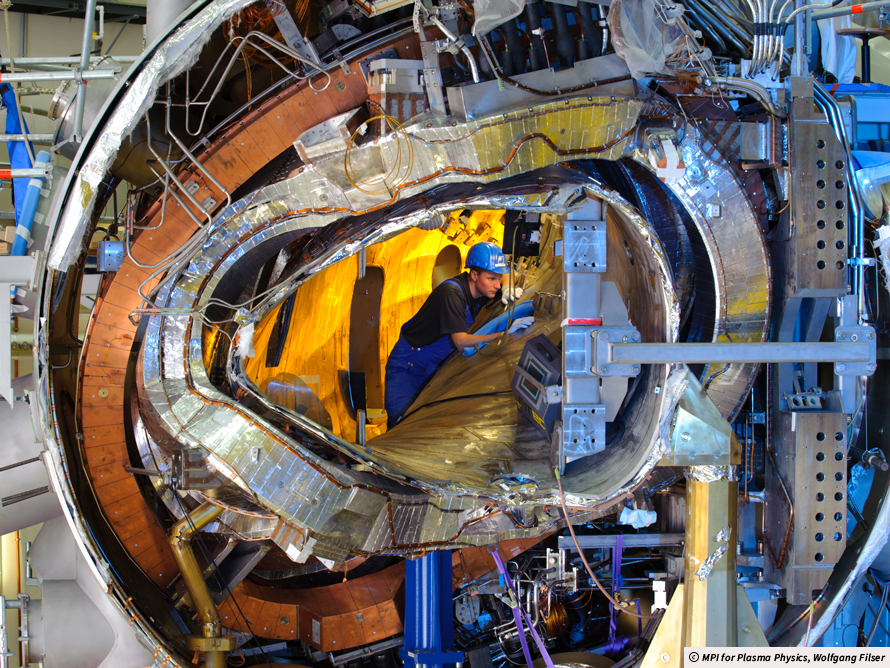Could nuclear fusion save the planet? Scientists have made a huge breakthrough towards this prized technology. But not everyone is convinced that fusion will be our saviour.
Stunning leap towards limitless energy
 Power: The 43-second breakthrough was achieved in the Wendelstein 7-X Stellarator, which is named after the Wendelstein mountain in Bavaria, Germany.
Power: The 43-second breakthrough was achieved in the Wendelstein 7-X Stellarator, which is named after the Wendelstein mountain in Bavaria, Germany. Glossary
Sanity - The ability to think and behave in a rational, reasonable manner.
Nuclear fusion - A potential means of generating nuclear power by combining two atoms to produce a new atom as well as a large amount of energy. It mimics the way in which stars produce energy.
Prototype - Original or test version of something.
Nuclear fission - A nuclear reaction in which nuclear material, usually uranium, is split into smaller atoms, creating excess energy that can be harvested.
Neutrons - A subatomic particle with no electric charge, found in the nucleus of an atom.
Atoms - The smallest unit of any chemical element.
Nuclear - A nuclear weapon has a devastating potential to cause damage. A few countries around the world have them.
Uranium-235 - An isotope of uranium that is capable of sustaining a fission chain reaction.
Hydrogen - The first element in the periodic table, and the most common element in the Universe. Stars are mostly made up of hydrogen.
Helium - A very light gas used in balloons to make them float. Old airships used hydrogen, but it burnt easily. Helium does not burn.
Fossil fuels - Fuels made from decomposing plants and animals, including coal, natural gas and oil. These fuels release carbon dioxide, causing global warming.
Viable - Capable of working successfully.
Plasma - a gas charged with electricity, found in stars such as the Sun. Physicists regard it as a state of matter, along with gas, liquid and solid.
White elephant - A burdensome and expensive possession, which is more trouble than it is worth. The phrase comes from the former Siam (modern-day Thailand), where white elephants were considered so sacred, that if you owned one, you had to spend money buying it expensive food and shelter, but you were not allowed to work it.

